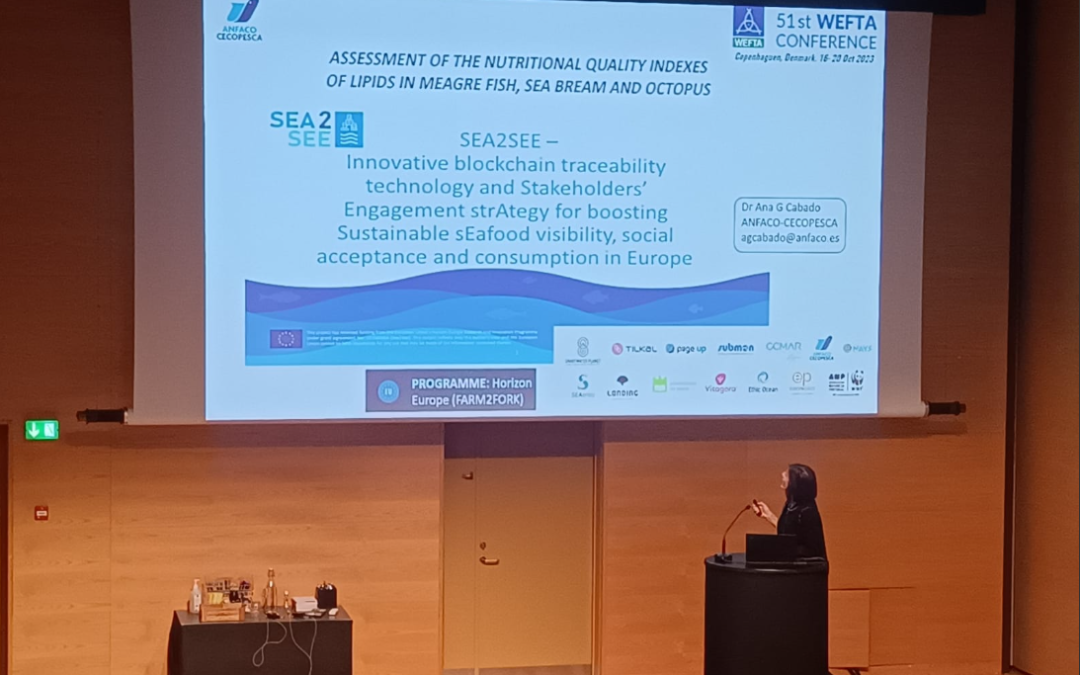SEA2SEE partner Ana García Cabado from ANFACO CECOPESCA, Spain took part in the 51st WEFTA Conference on October 17, in Copenhagen, Denmark. Her presentation, entitled “Assessment of the nutritional quality indexes of lipids in meagre fish, sea bream and octopus” included some preliminary results derived from the work activities conducted within work package 6 dedicated on life cycle analyses, impact and market uptake. The objectives of this work package are to guarantee the quality and safety of the evaluated seafood products. Specifically, meagre fish and sea bream, produced through sustainable aquaculture, and octopus, which is captured by artisanal fishermen. Results show that these sea products are not only safe but also have a high nutritional quality and are recommended for maintaining consumers´ good health.
The 51st Western European Fish Technologists Association (WEFTA) Conference is the central platform in Europe for institutions engaged in fish processing, applied food science, aquaculture, seafood technology, health effects of seafood consumption and consumer studies. It aims to improve the safety and quality of seafood in and from the European and other markets through research within this area.
The annual WEFTA conference is a valuable occasion for different stakeholders such as scientists, students, and the seafood industry to meet and present recent research achievements, while sharing experiences. This year’s conference theme was “Sustainable Utilization of aquatic resources – changing the way we Seafood”. The discussions expanded on the understanding of seafood by exploring various topics and delving into different aspects of fish technology, which ultimately contribute to the sustainable use of aquatic resources, so that participants can reshape their perception of seafood.
Other topics of interest were Sustainable aquaculture and its link to seafood quality, Micro-/macroalgae and its applications in food, Side streams for food and non-food products to reach zero waste production, Processing and quality of seafood, Safety and authenticity, Consumer attitudes, societal challenges, and seafood products.
Nearly 150 participants attended the conference, including international organizations, technologists, competent authorities, university scientists, and others from institutes or research centers.
The abstracts presented at the conference can be found here.

